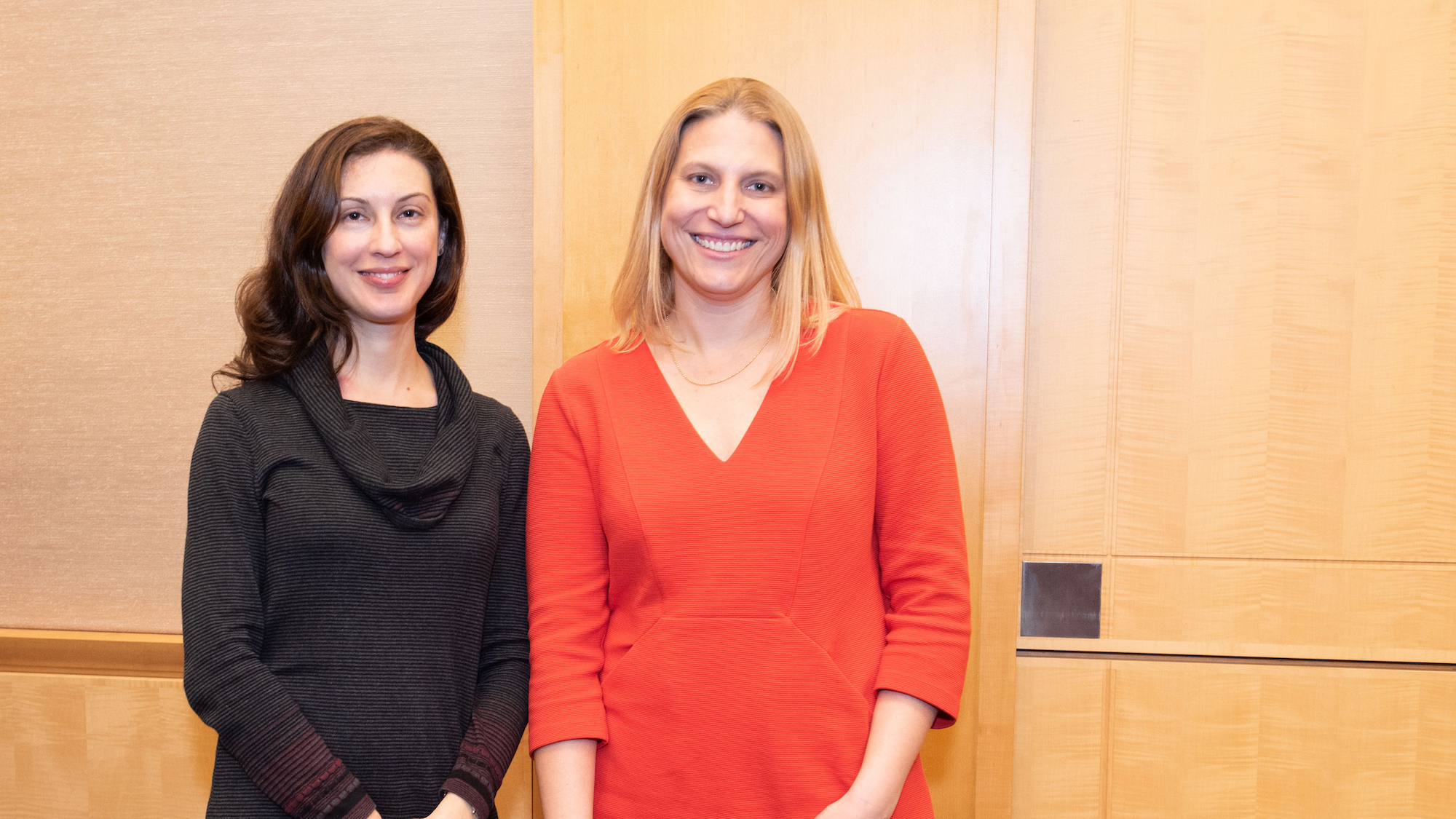
Jenna Galloway, PhD
Researcher, Department of Orthopaedic Surgery and the Center for Regenerative Medicine, Massachusetts General Hospital
Assistant Professor, Harvard Medical School
Jessica Lehoczky, PhD
Researcher, Department of Orthopaedic Surgery, Brigham and Women’s Hospital
Assistant Professor, Harvard Medical School
Xubo Niu, PhD
Research Fellow, Department of Orthopaedic Surgery and the Center for Regenerative Medicine, Massachusetts General Hospital
Vikram Khedgikar, PhD
Research Fellow, Department of Orthopaedic Surgery, Brigham and Women’s Hospital
Identifying drugs to expedite the healing of orthopaedic injuries
The challenge with traumatic injuries is the ability to rapidly heal the damage and fully restore function. In this project, Galloway and Lehoczky focus on two tissues that present a clear clinical need: non-healing fractures of the bone and damage to the soft connective tissues of the joint. Although bone can have robust abilities to regenerate, a substantial number of fractures do not fully heal even with all available treatment options. Unlike the bone, injured tendons and ligaments do not regenerate, but instead scar, resulting in an inferior tissue prone to reinjury. Identification of drugs capable of expediting tendon and bone healing would make a significant clinical impact on orthopaedic trauma. In this project, the investigators seek to identify drugs that promote mesenchymal stem cells to form skeletal or tendon tissues. These experiments lay the foundation for their long-term goal of translating these findings into therapies using the identified drugs to accelerate bone and/or tendon repair in patients.
Jenna Galloway, PhD, received her BA in biology from Johns Hopkins University and her PhD in genetics from Harvard University. Her graduate research was performed in the laboratory of Leonard Zon, MD, at Boston Children’s Hospital, where she worked on pathways regulating blood stem cell biology and lineage fate decisions. After her PhD, Galloway joined the lab of Clifford Tabin, PhD, in the Department of Genetics at Harvard Medical School, where she applied her knowledge of musculoskeletal development towards an improved understanding of the mechanisms leading to a congenital limb malformation called phocomelia. Currently, Galloway is an assistant professor in the Department of Orthopaedic Surgery and the Center for Regenerative Medicine at Massachusetts General Hospital and Harvard Medical School. Her laboratory uses zebrafish genetics and stem cells to understand how tendons and ligaments form, organize, and regenerate. Ultimately, Galloway’s goal is to apply this knowledge toward the development of improved therapies for tendon and ligament injuries.
Jessica Lehoczky, PhD, received her BA in biology and mathematics from Lehigh University and went on to work on the Human Genome Project at the Whitehead Center for Genome Research (now the Broad Institute). She earned her PhD in human genetics from the University of Michigan, where, under the mentorship of Jeffrey Innis, MD, PhD, she studied the transcriptional regulation of Hox genes during limb development. For her postdoctoral research, Lehoczky joined the lab of Clifford Tabin, PhD, in the Genetics Department at Harvard Medical School, where her research, focused on the endogenous process of mouse digit tip regeneration, laid the foundation for her independent research laboratory. Presently, Lehoczky is an assistant professor in the Department of Orthopaedic Surgery at Brigham and Women’s Hospital. Her laboratory is focused on digit tip regeneration to understand composite tissue regeneration. The goal of this research is first to determine the necessary molecular pathways and specialized cell types needed for this innate process in mammals, and ultimately to apply these findings to non-regenerative limb amputations and other tissues.
